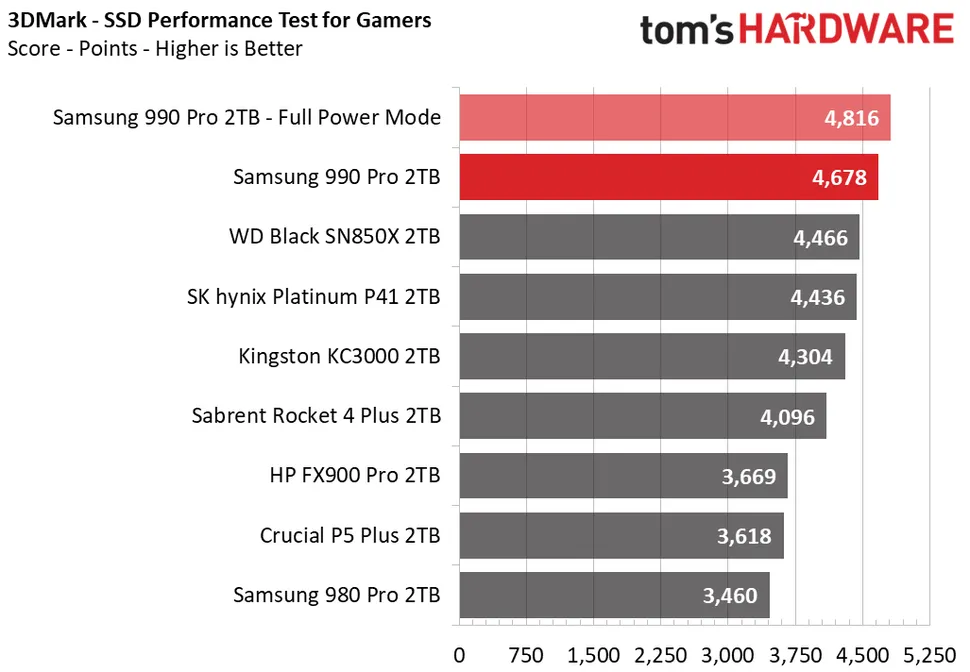I would like to have seen a benchmark of this drive but connected to a PCIe 4.0 slot; just to get a good idea of how it would perform in a recent (but not bleeding-edge) motherboard. If it's got performance on-par with the leading PCIe 4.0 drives, then it may make sense to get this drive while waiting for the next must-have upgrade to the motherboard/CPU. If it's going to perform like a mid-tier PCIe 4.0 drive, then it makes sense to go with a top-tier PCIe 4.0 drive instead of this one if you're going to keep using something like an AMD 5000-series or Intel 11th or 12th gen CPU for a few more years.
We could limit the PCIe slot to Gen4 speeds. But why? This drive costs over twice as much as a top-tier Gen4 drive of similar capacity. If you don't have a Gen5 slot, there's no reason to buy it. Latency isn't better, random QD1 performance isn't better, and power consumption is far higher. It's all about the raw bandwidth.
You'd be far better off buying a good Gen4 drive, and then if/when you upgrade your motherboard to something that supports PCIe 5.0 drives, you could probably buy a future Gen5 drive for the same price as the Gen4 drive, and still come out ahead. That's what I'd recommend doing.
If it were a case of spending maybe 20% more for the potential upgrade in the future, yes, that might be worth considering. But when we're looking at $340 for the 2TB model, and the
Samsung 990 Pro 2TB costs half that, or the
Solidigm P44 Pro 2TB goes for $130? It just doesn't make much sense without a Gen5 platform to run the SSD. We can only hope that the PCIe 5.0 price premium comes
way down in the near future, because as fast as this drive is, it's not worth more than $200 in my book.



